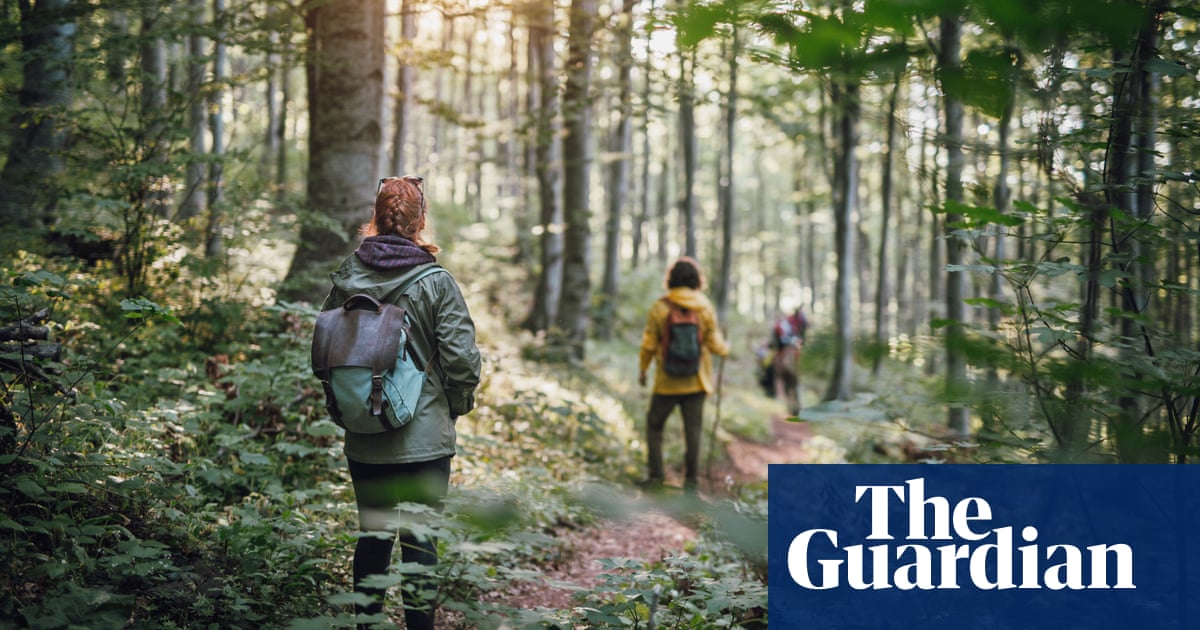The Transformative Power of Nature on Memory, Imagination, and Logic
Core Concepts
Exposure to nature significantly impacts cognitive function and emotional well-being, supported by environmental neuroscience research.
Abstract
Spending time in natural environments positively influences cognitive function, creativity, and mood. The brain benefits from nature's calming effects and restoration of attention. Research shows that even brief exposure to nature can enhance problem-solving abilities and reduce stress levels significantly.
Customize Summary
Rewrite with AI
Generate Citations
Translate Source
To Another Language
Generate MindMap
from source content
Visit Source
www.theguardian.com
The nature cure: how time outdoors transforms our memory, imagination and logic
Stats
One study found that after just 40 seconds of looking at a green roof, subjects made fewer mistakes in a test than when they looked at a concrete one.
A four-day hike without technology increased participants' creativity by 50%.
Exposure to nature activates the parasympathetic nervous system related to a "resting" state.
Functional magnetic resonance imaging (fMRI) revealed changes in brain activity during nature exposure.
Places with a diversity of bird and tree species yielded less anxiety and better mood than less species-rich areas.
Quotes
"Research has consistently demonstrated enhanced creativity after immersion in natural environments."
"Exposure to nature instils feelings of calm and wellbeing that enable us to think more clearly and positively."
"We are looking at why we build things the way that we do. Now, it’s all about efficiency."
Key Insights Distilled From
by Sam Pyrah at www.theguardian.com 11-27-2023
https://www.theguardian.com/lifeandstyle/2023/nov/27/the-nature-cure-how-time-outdoors-transforms-our-memory-imagination-and-logic
Deeper Inquiries
How can urban environments be designed to mimic the restorative qualities of natural settings?
Urban environments can be designed to mimic the restorative qualities of natural settings by incorporating elements that evoke soft fascination and engage the brain in an undemanding way. This includes integrating fractal patterns, curved lines, and a high level of biodiversity into the built environment. By reducing hard edges, straight lines, and excessive stimuli typical of urban areas, designers can create spaces that are more calming and beneficial for cognitive function. Additionally, adding green spaces, water features, and natural materials can help create a sense of safety and psychological distance from everyday stressors.
Is there a risk of diminishing the value of real-world nature experiences if we try to replicate them artificially?
There is a potential risk of diminishing the value of real-world nature experiences if we rely too heavily on artificial replication. While incorporating nature-inspired elements into urban design can offer benefits for cognition and well-being, it may not fully replace the holistic experience of being in a natural environment. Real-world nature experiences provide unique sensory inputs, smells, sounds, textures, and interactions with living organisms that cannot be replicated artificially. Over-reliance on simulated nature could lead to a disconnection from authentic natural settings and limit our exposure to diverse ecosystems.
How does the lack of access to nature impact cognitive function and overall well-being?
The lack of access to nature has been shown to have negative impacts on cognitive function and overall well-being. Studies have demonstrated that greater contact with natural environments is associated with improved cognition including working memory attention span reasoning intelligence spatial memory visual attention fluency creativity problem-solving skills mood regulation immune system functioning cardiovascular health childhood intellectual development.
When individuals do not spend time in green or natural spaces their brains may not work optimally leading to increased stress levels reduced mood decreased attention spans impaired memory processing difficulties decision-making challenges among other issues.
Therefore it is essential for individuals especially those residing in urban areas without easy access to parks forests or other green spaces make efforts prioritize spending time outdoors regularly as part their routine maintain optimal cognitive functioning mental health physical wellbeing
0
